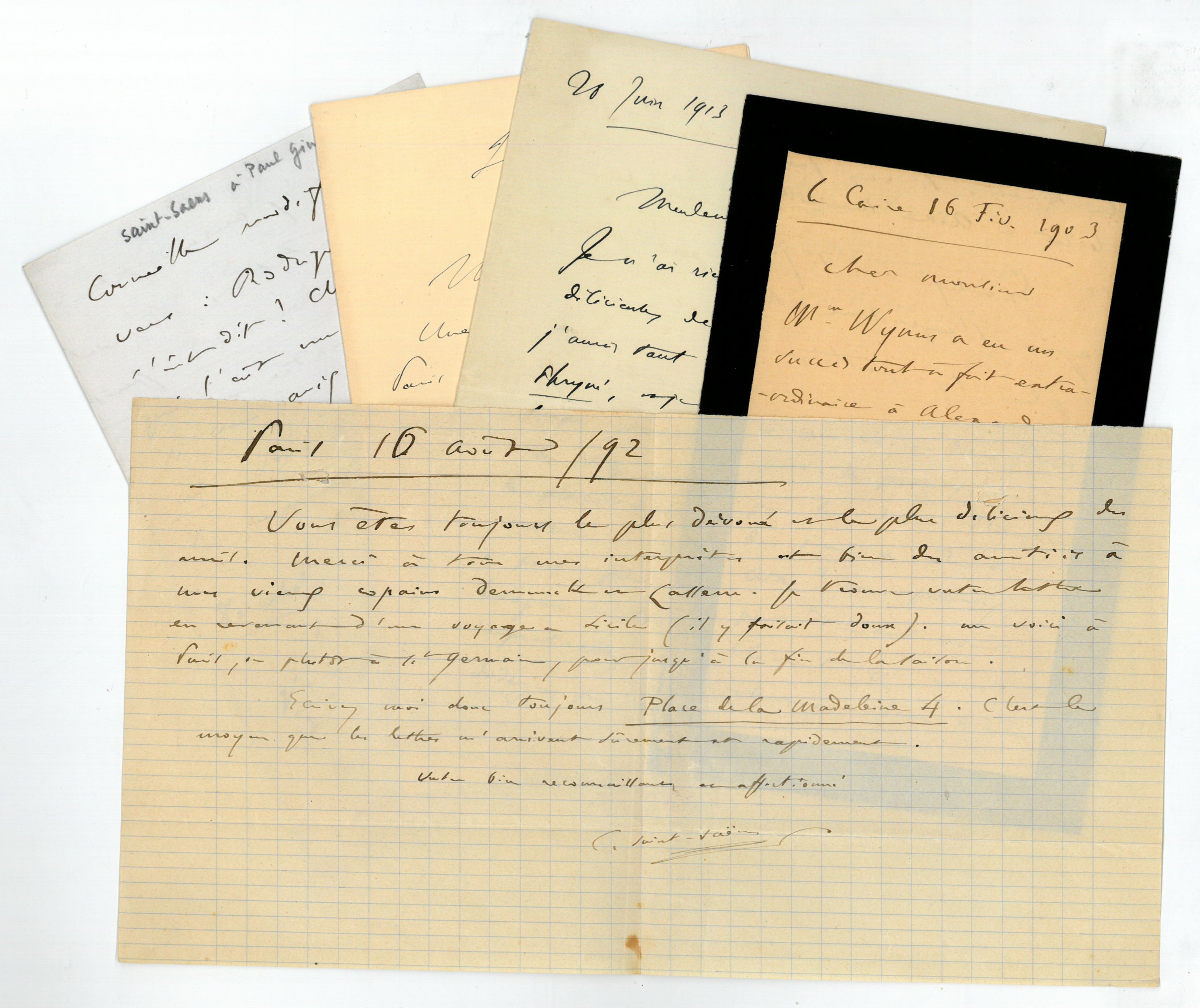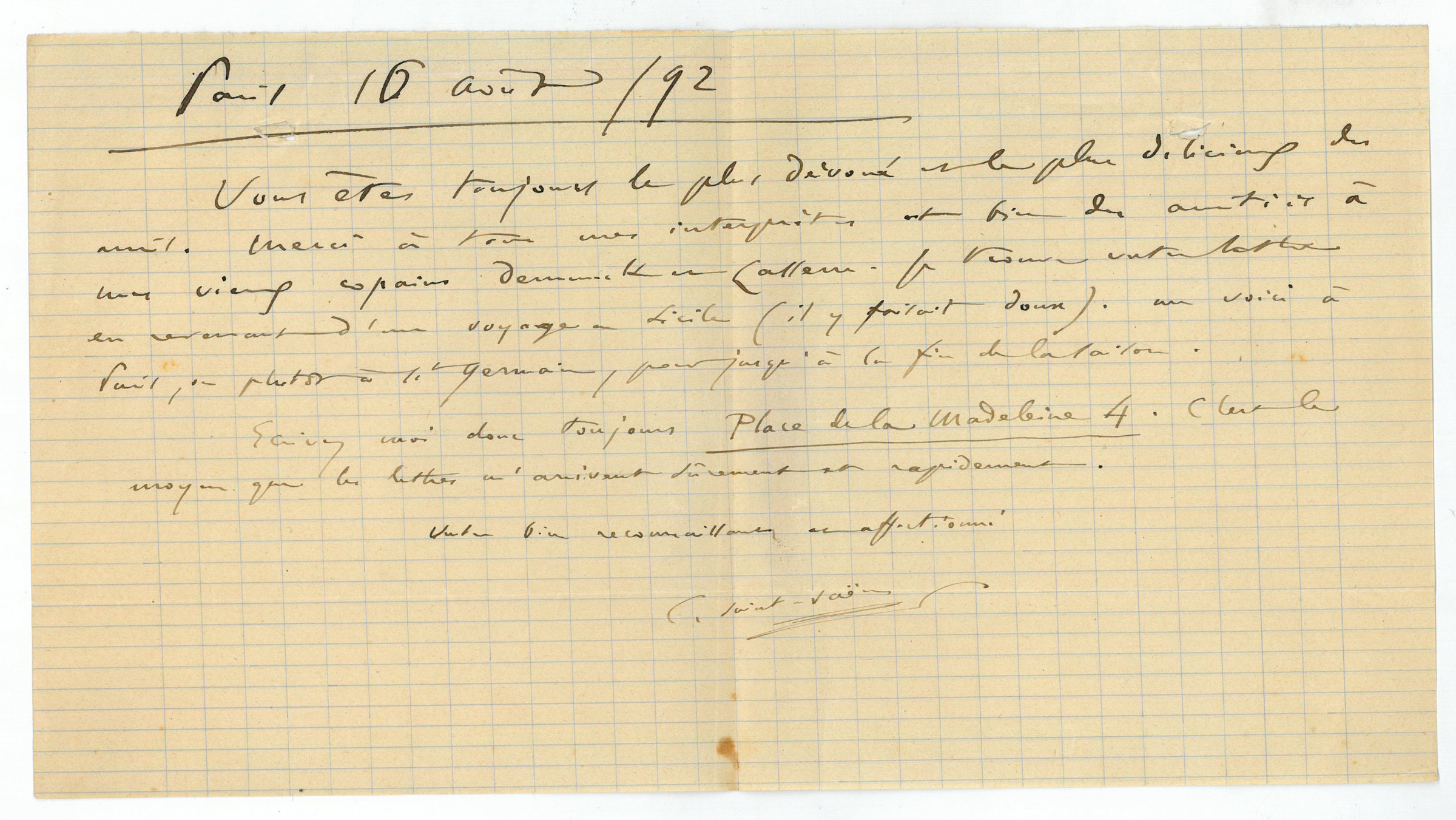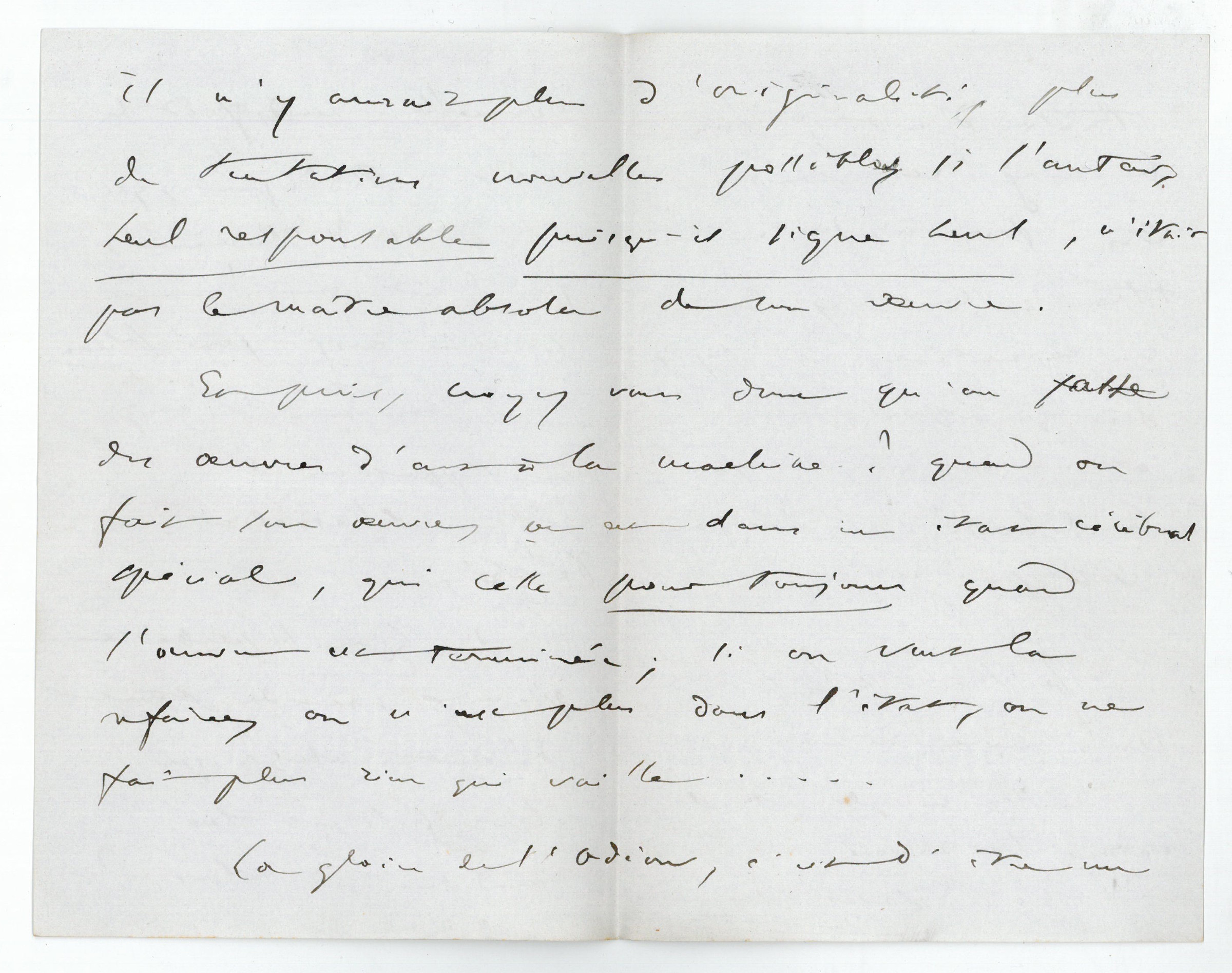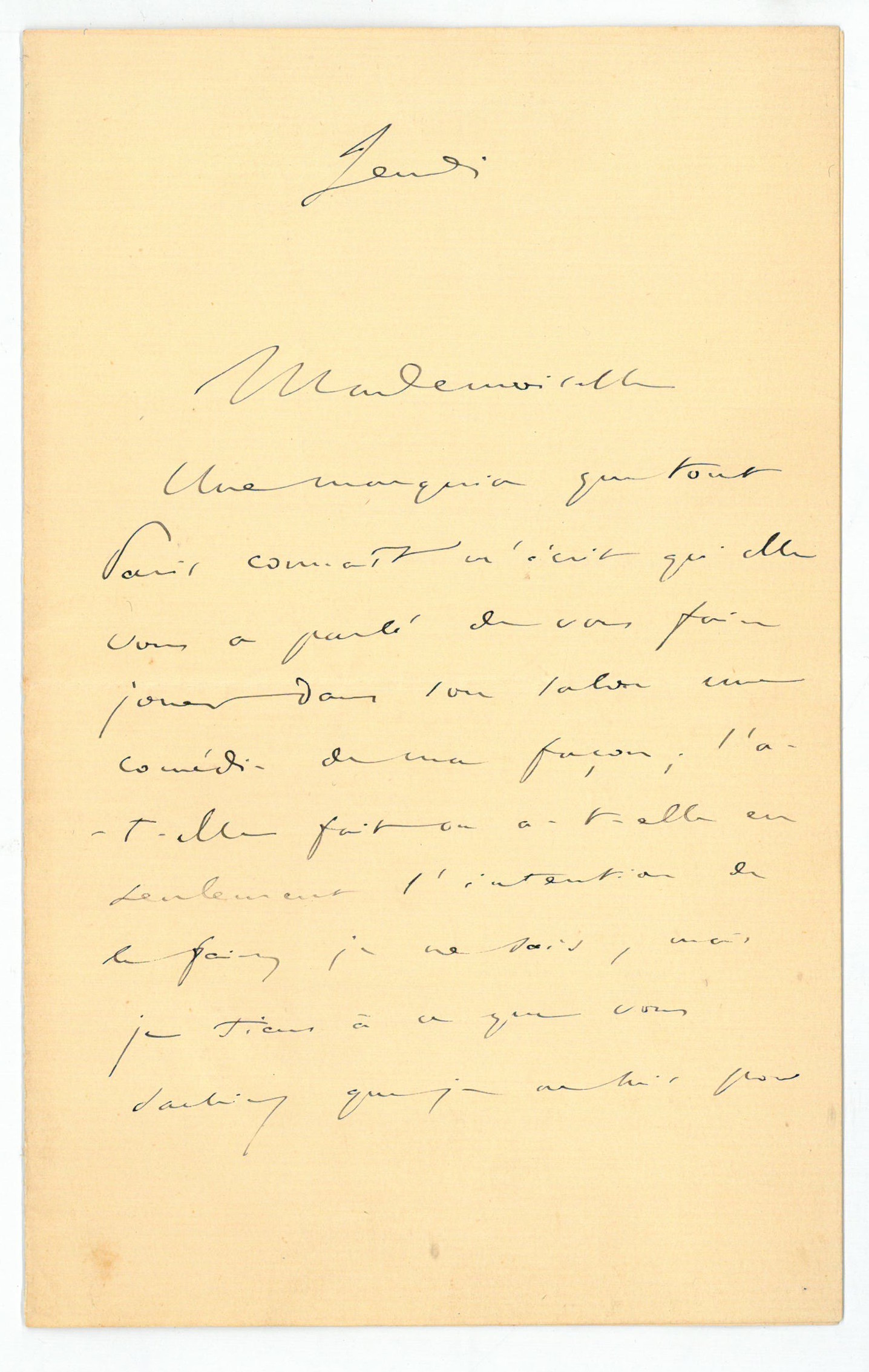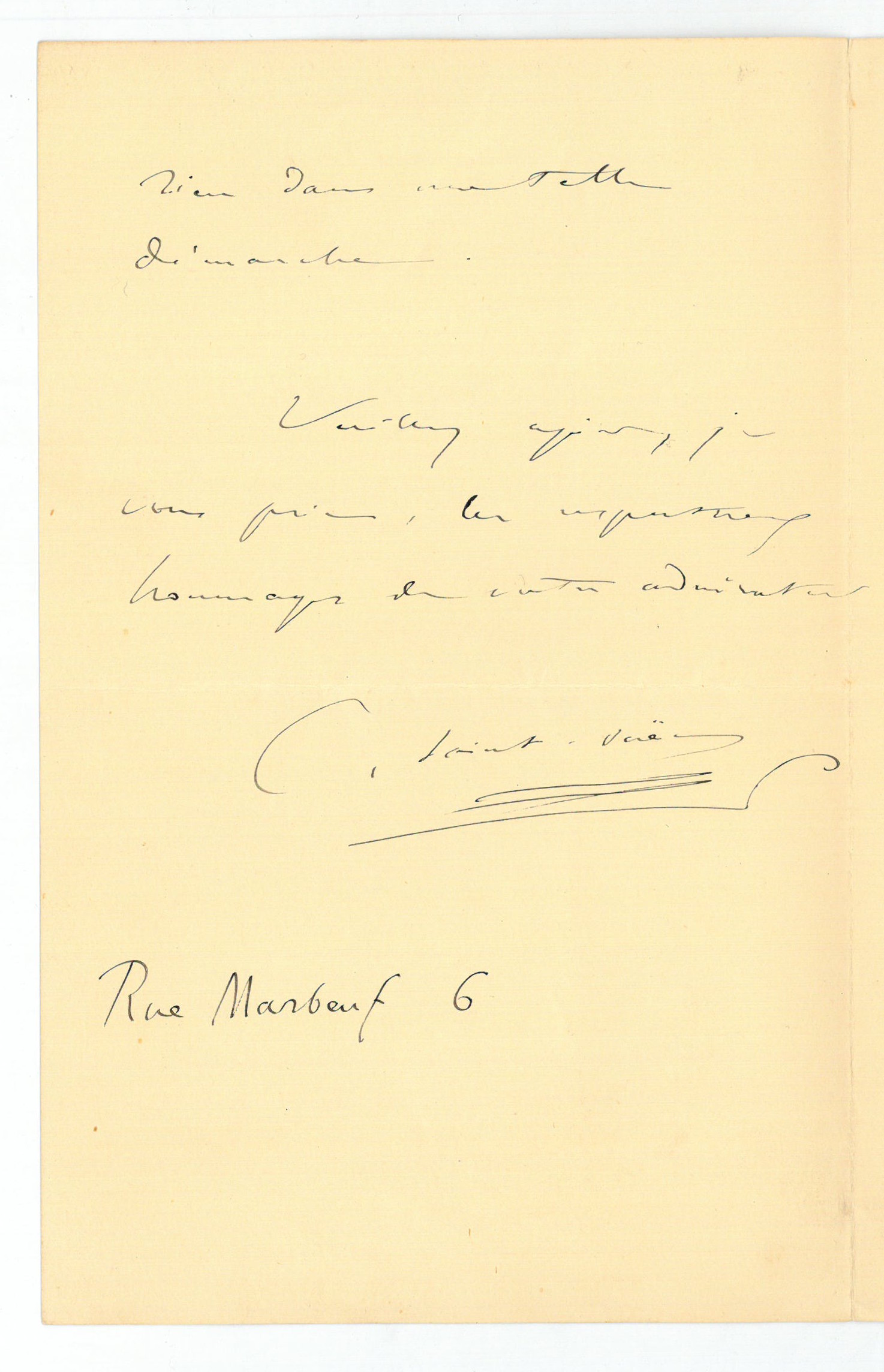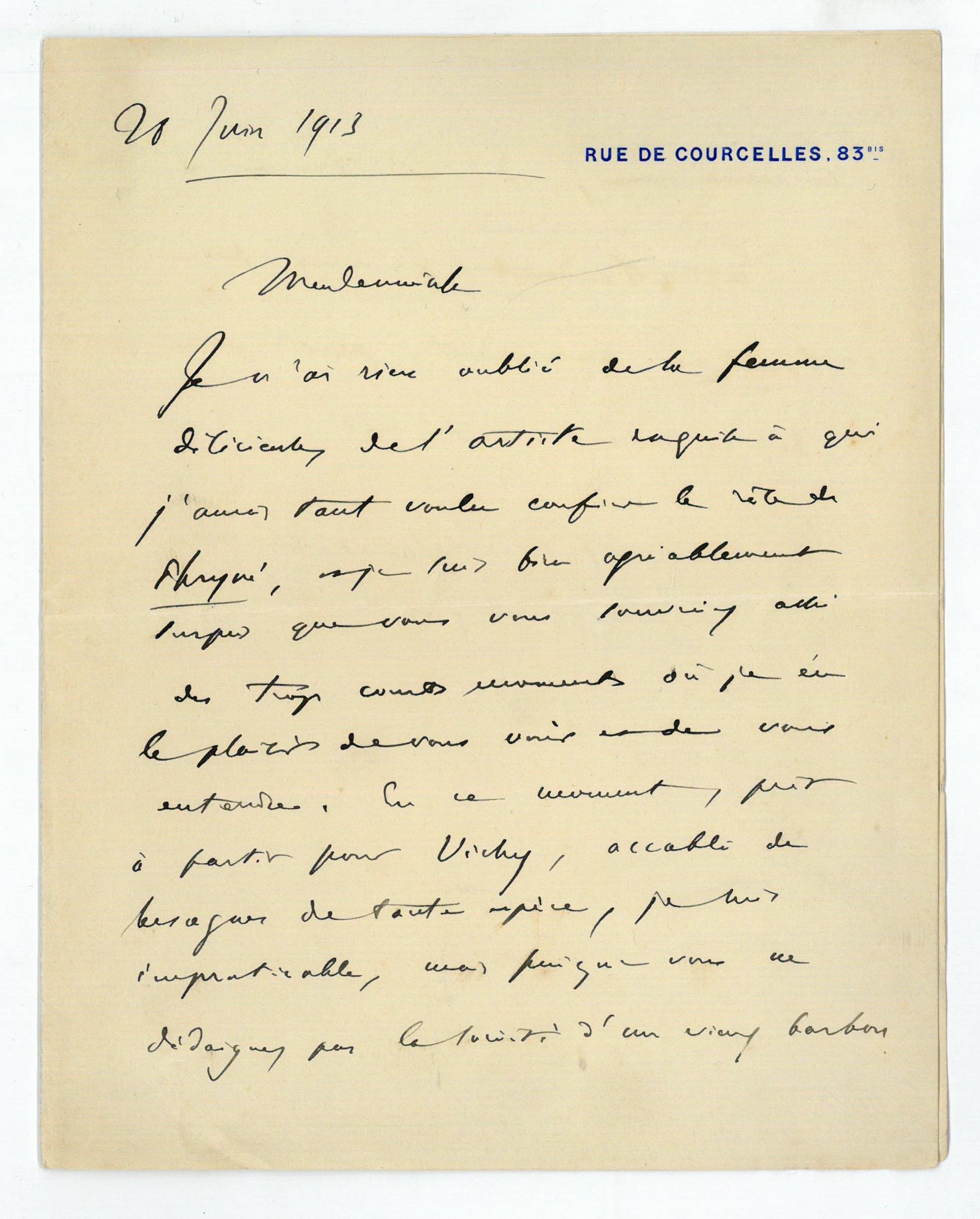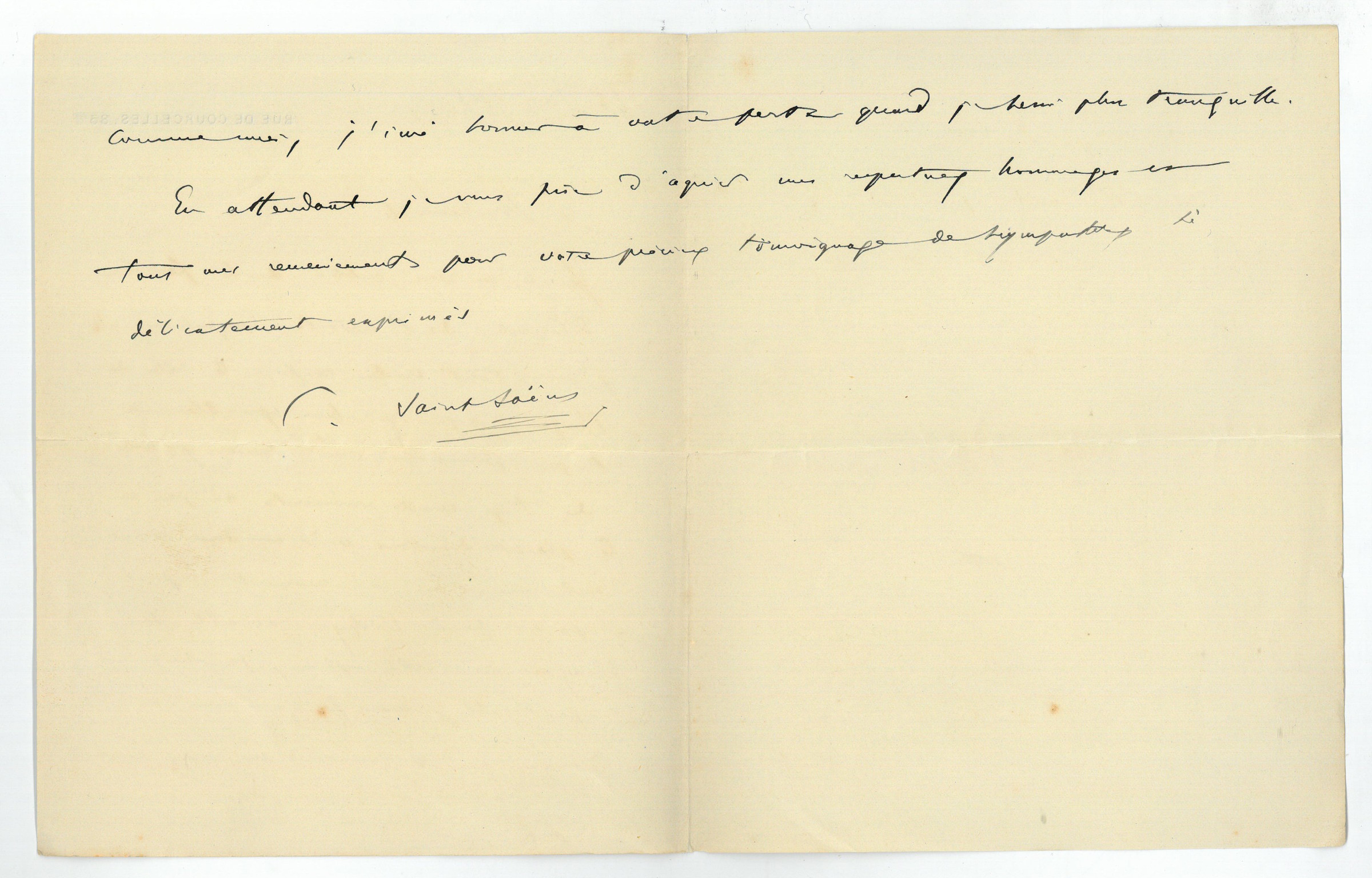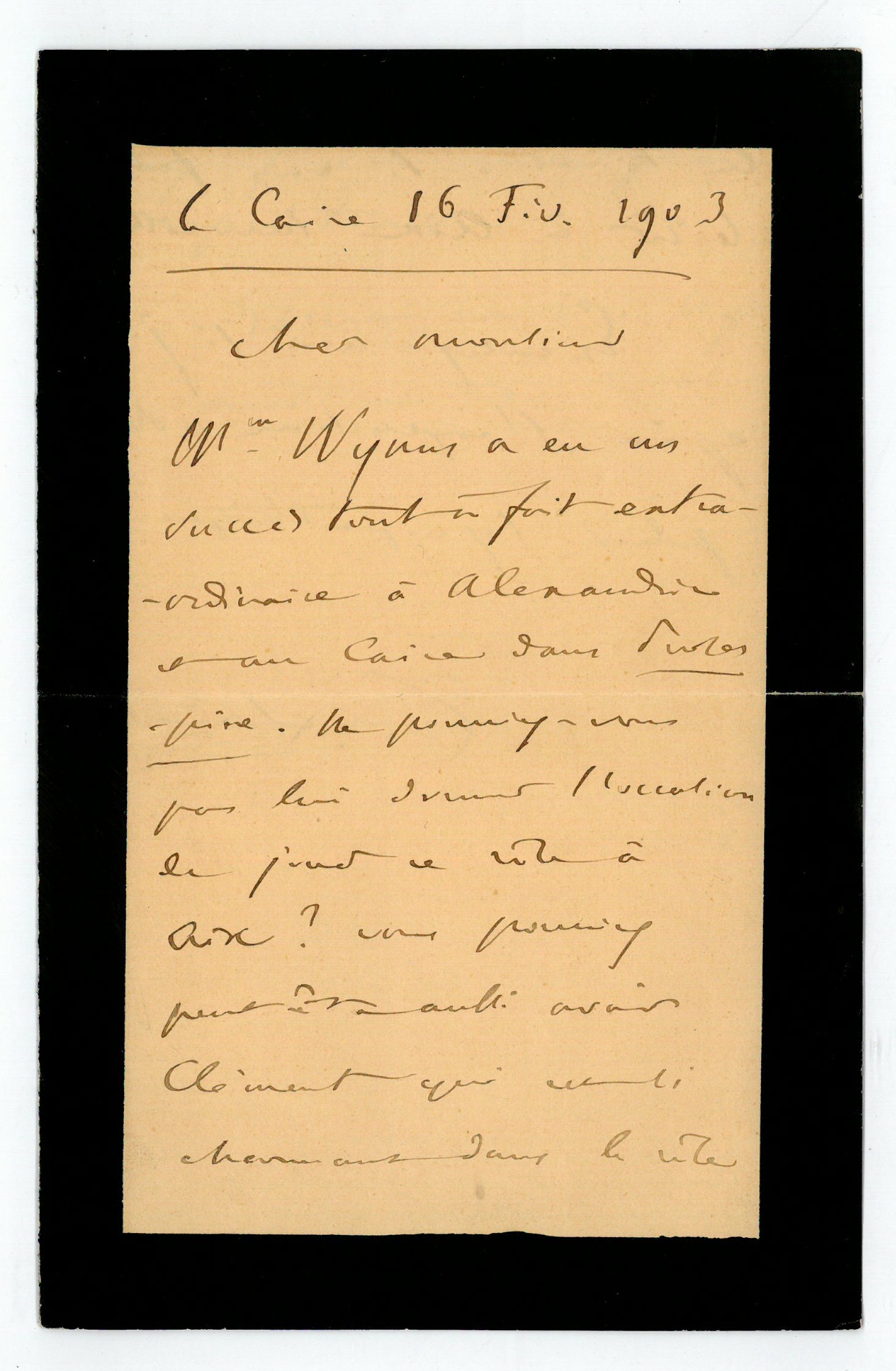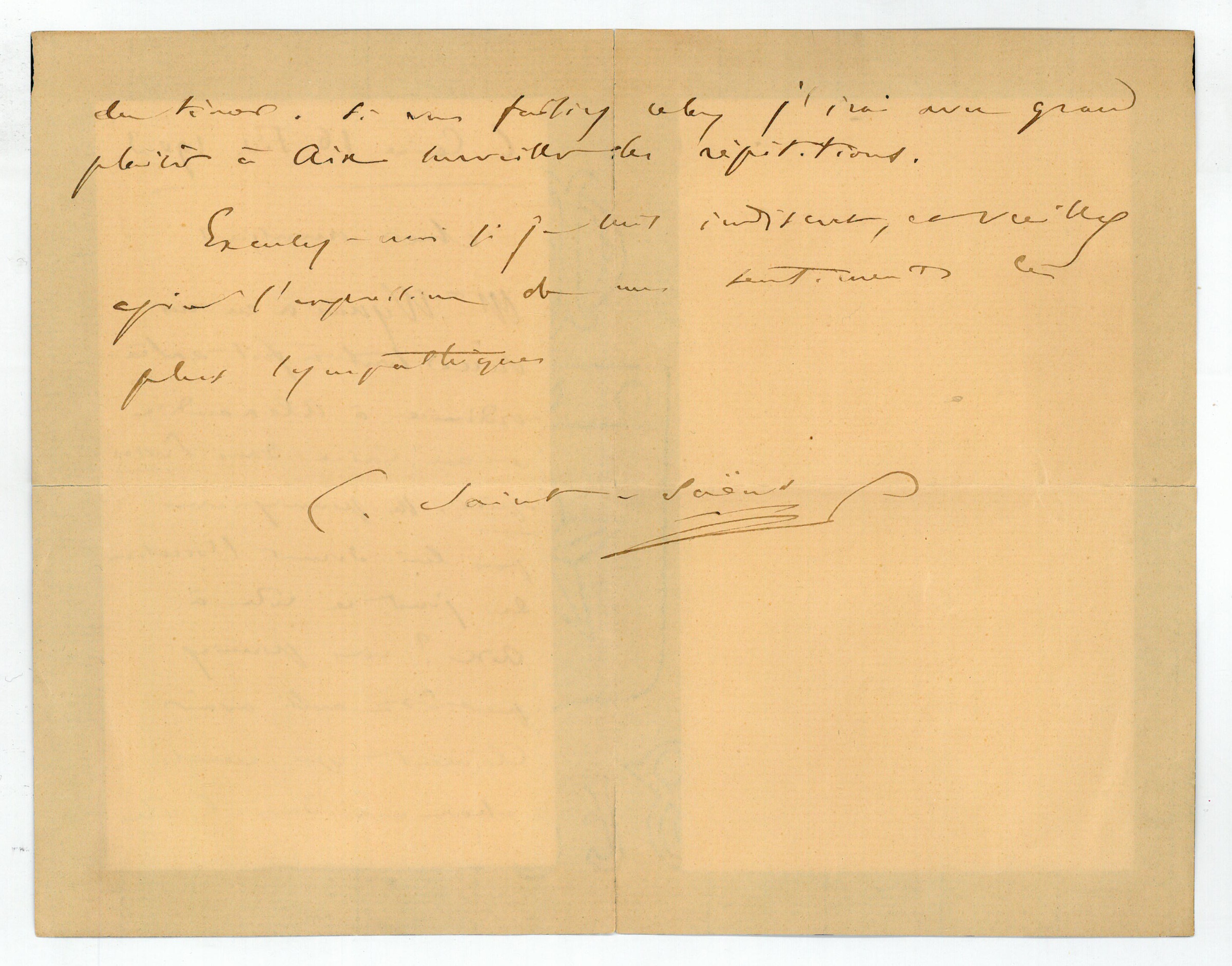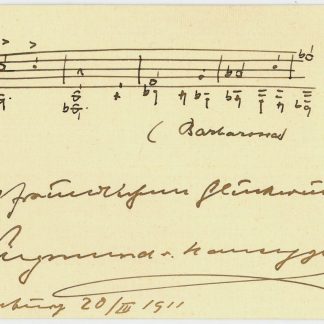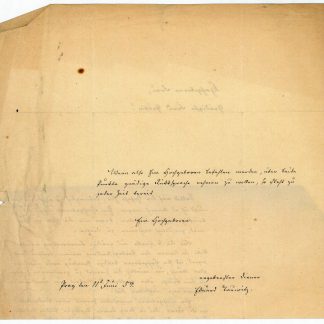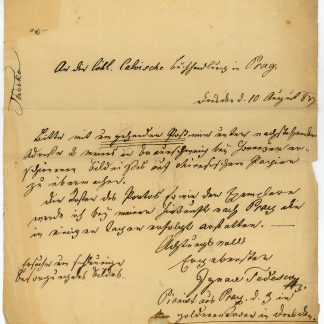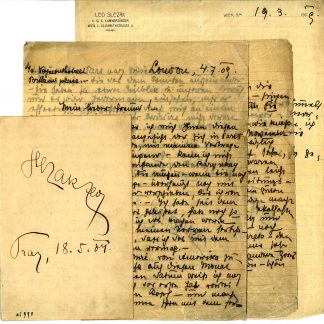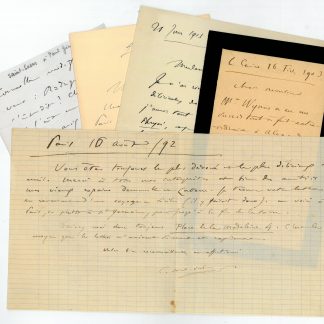"Art does not live in captivity": Camille Saint-Saëns on art and matters more mundane
5 autograph letters signed.
8vo and oblong 8vo. Together 10½ pp.
€ 850,00
Interesting collection of letters spanning three decades, including a passionate plea for artistic freedom. This plea is part of an undated letter that was probably addressed to the writer and theatre director Paul Ginisty. After congratulating the recipient on a representation of Corneille's Cid, Saint-Saëns writes at length about authorship and artistic ingenuity, dismissing the possibility of "machine art" and describing a "special cerebral state" during the production of a work of art that "ends forever when the work is finished". In closing, Saint-Saëns praises Ginisty's Théâtre de l'Odéon as a "theatre of art" and pleads with the recipient to "preserve this character well", reminding him that there is only one way to achieve this: "liberty" as "art does not live in captivity". Paul Ginisty, identified as the recipient in a collector's note, was director of the Odéon from 1896 to 1906. Camille Saint-Saëns' Déjanire had its Paris premiere at the Odéon in 1898.
The earliest letter in the collection was written to thank an unnamed friend and collaborator for his devotion: "Vous êtes toujours le plus dévoué et le plus délicieux des amis. Merci à tous mes interprètes et bien des amitiés à mes vieux copains [...]" (Paris, 16 August 1892).
On 16 February 1903 Saint-Saëns wrote from Cairo to an unnamed impresario in Aix, reporting that the mezzosoprano Charlotte Wyns enjoyed a "truly extraordinary success in Alexandria in Proserpine" and suggesting that she and the tenor Edmond Clément should sing in Proserpine in Aix, where he would join the rehearsals.
In a charming letter from 28 June 1913, the maestro thanks a young singer for her letter and for remembering him, asserting that he has not forgotten anything "of the charming woman, the artist" with whom he would have "wanted so much to entrust the role of Phryné". Since she "does not scorn the company of an old bearded man" like him, Saint-Saëns promises that he will contact her once he has more time.
Finally, an undated letter was to inform the recipient, probably a young singer, that Saint-Saëns did not approve of the plan of a "Marquise whom all of Paris knows" to have her play in a comedy in his style: "Une marquise que tout Paris connaît m'écrit qu'elle vous a parlé de vous faire jouer dans son salon une comédie de ma façon ; l'a-t-elle fait ou a -t-elle en seulement l'intention de la faire, je ne sais, mais je tiens à ce que vous sachiez que je ne suis pas bien dans une telle démarche".
The letter from Cairo on mourning paper. The letter from 1913 with embossed letterhead "Rue de Courcelles, 83bis". Occasional browning and minimally stained; the letter from Cairo with deep tears to the folds, partly affecting the text. The letter dated 16 August 1982 with two holes partly affecting the text and traces of former mounting.

